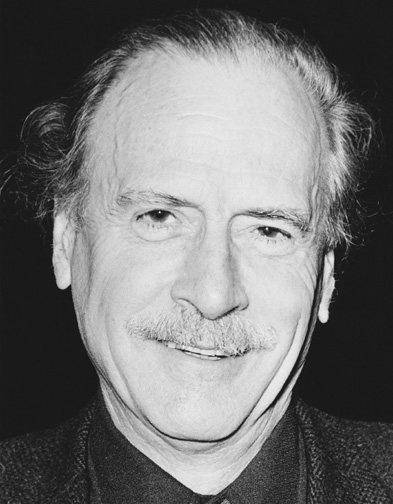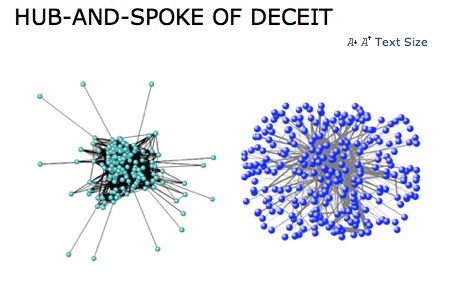Transcript of a debate between me and Jason Cowley, Editor of the New Statesman, in today’s Observer.
Category Archives: Media ecology
The two-year-old’s view of the world
From a helmet cam.
The power of images — and their fragility
This morning’s Observer column.
Dear Photograph is a remarkable demonstration of the power of ordinary, humdrum photographs to evoke memories. Anyone who has ever found a shoebox of old prints in an attic will know this. They yield up images of ourselves when we were young, slender and innocent, of our parents with unlined, carefree expressions and unfurrowed, untroubled brows, of holidays once enjoyed, places once visited. Photographs freeze moments in time, reminding us of who we were – and, by implication, of who we have become.
But Dear Photograph is also a stark reminder of how threatened this power of photography has become. There is, for one thing, the brusque, matter-of-fact, upfront Terms and Conditions of the site. “When you submit your materials,” it reads, “you grant dearphotograph.com a non-exclusive, irrevocable, royalty-free licence to use the work to be used, copied, sub-licenced, adapted, transmitted, distributed, published, displayed or otherwise under our discretion in any and all media”. Or, to adapt the famous broken English internet meme, “all your memories are belong to us”.
CORRECTION: Broken link to dearphotograph.com now fixed. Thanks to Seb Schmoller for spotting it.
The iPad and time-shifted reading
Fascinating TechCrunch post by Erick Schonfeld on how the iPad changes people’s reading habits.
One of the reasons bookmarking apps like Read It Later and Instapaper are becoming so popular is because we are inundated with news and interesting links all day long, but have no time to read them. But just as DVRs helps us shift our TV viewing to better fit our own schedules, these apps helps us time shift our online reading. And according to some data put out earlier this month by Read It Later, it looks like the iPad is becoming the time-shifting reading device of choice.
Read It Later offers a bookmarklet which enables one to ‘save’ a Web page for offline reading on an iPad. The people who run the service surveyed the bookmarking habits of its users over the course of a day. The rate of bookmarking was pretty uniform in the period 7am – 6pm but drops off sharply after 9pm. They then looked at when iPad users read the articles they have saved and found that the time reserved for reading is shifted all the way to the right, with the sweet spot being between 7 PM and 11 PM at night. This suggests, they say, that “iPad usage is competing with primetime TV for people’s attention (or that they watching TV with iPad in hand, or shifting their TV viewing to other times).”
This is intriguing — and squares with my own experience. Instapaper is one of the Apps I use — and value — most.
Thanks, Marshall, I think we’ve finally got the message…
This morning’s Observer column.
“A prophet is not without honour”, says the Bible, “save in his own country.” This was manifestly not true in the case of Marshall McLuhan, the Canadian cultural critic, who was born 100 years ago last Thursday, and was famous not only in his own country, but also abroad. In fact, he’s the only public intellectual I can think of who played himself in a Woody Allen movie.
Film buffs will recall the wonderful sequence in Annie Hall, where Woody and Diane Keaton are queuing for a movie when a guy behind them starts opining pompously about McLuhan’s description of television as a “high intensity or hot medium”. Allen expresses to camera a desire to have a large sock full of horse manure close to hand, whereupon the guy asserts his right to express his opinion on the grounds that he teaches a course at Columbia on “TV, media and culture”, a fact that – he asserts – gives his views on McLuhan a great deal of validity.
“That’s funny,” replies Woody, “because I happen to have Mr McLuhan right here.” He goes over to a flipchart and pulls out the great man himself from behind it. “I heard what you were saying, “says McLuhan to the Columbia man. “You know nothing of my work… how you ever got to teach a course in anything is totally amazing.” The scene closes with Woody saying to camera: “Boy, if life were only like this.”
As it happens, there have been many times in the past few years when it would have been useful to have had McLuhan to hand because, in a strange way, his insights into media seem more relevant now than they were in the 1960s when he sprang into prominence…
See also this post.
The Messenger and the Medium
Today is the centenary of Marshall McLuhan’s birth. He’s one of those thinkers who is so famous that everyone thinks they know what he stood for, but I guess that most people, if pressed, can only quote (or misquote) one of his aphorisms — “the medium is the message”, and the phrase “the global village”.
McLuhan lived — and wrote — in an age dominated by broadcast television, but, oddly enough, his thinking seems much more relevant to our current networked media environment.
There’s an awful lot of stuff about him on the Web (and in libraries), but IMHO the best and most insightful commentary is by Tom Wolfe in this terrific 22-minute video.
If you do nothing else today, make a cup of coffee and watch it.
Among its many merits is the insightful way Wolfe dissects the two biggest influences on McLuhan’s thought: the work of Harold Innis; and the ideas he drew from the French mystic Teilhard de Chardin, the guy who coined the term “noosphere”. And if you’re puzzled by what all this has to do with the Net, can I remind you of Eric Raymond’s fascinating essay, “Homesteading the Noosphere”?
Woolfe clarifies one of the great mysteries of McLuhan’s writings: why was he so punctilious in crediting Innis as a source of inspiration, while at the same time being entirely reticent in acknowledging the influence of de Chardin on his thinking? The answer, it seems, lies in the fact that McLuhan was a devout Catholic who taught in a Catholic university; and despite the fact that de Chardin was a Jesuit priest, his belief in evolution meant he was persona non grata with the Vatican; and because he was seen by the secular world as a mystic, he was persona non grata in academia. In this case it looks as though McLuhan took the path of least resistance.
My Observer column on Sunday will also be devoted to McLuhan.
The smartphone challenge
This morning’s Observer column.
My favourite line in the film A Fish Called Wanda comes when Otto (Kevin Kline), a psychopathically idiotic ex-CIA operative, objects to being called “stupid” by Wanda (Jamie Lee Curtis). To which Wanda replies: “To call you stupid would be an insult to stupid people! I’ve worn dresses with higher IQs.”
Until relatively recently, “dresses” could have been replaced by “mobile phones” in the script, and the line would still have raised a laugh. But that’s changing fast. Quite how fast was revealed last week in an extraordinary report from the Pew Internet and American Life Project. … The Pew report found that 35% of American adults now own a ‘smartphone’, that is to say a mobile phone with a significantly more powerful processor and much better internet connectivity than an old-style handset which could do voice and text and not much else…
Why we need business models to support real journalism
Here’s a cautionary question for those of us who are gung-ho about the possibilities of the online world: where would the UK phone-hacking story be without the Guardian?
Answer: nowhere. The Murdoch political and news-management machine would have been able to get away with it. It was the Guardian that kept the phone-hacking story alive, long after most other journalistic institutions, Parliament, the police and the Press Complaints Commission had given up on it. One of the many reasons Peter Oborne’s Telegraph essay on the affair was so remarkable is that he paid tribute to the Guardian for performing “such a wonderful service to public decency by bringing to light the shattering depravity of Mr Murdoch’s newspaper empire”. For one British newspaper to pay tribute to another in this way is almost unprecedented, but in this case Oborne is right.
The really important point is that there are some things that can only be done by a properly organised and funded news organisation. Investigating a scandal like this requires great skill (of the kind displayed by Nick Davies and his colleagues), plus determination, courage and resources — legal and logistical. These don’t come cheap and have to be funded, somehow. I yield to nobody in my enthusiasm for what Charlie Beckett calls networked journalism, and I’m a great believer in harnessing collective IQ by crowdsourcing and so on, but a scandal like the illegal behaviour of the Digger’s satraps and their accomplices in the Metropolitan Police is unlikely to be exposed just by the Net. Much of the posturing by print media about how important newspapers are for democracy is just cant, because it confuses a format (the printed paper) with function (journalism). What matters — what democracy needs — is great journalism of the kind practised by Nick Davies and his colleagues. And that needs organisations — and business models — that can support it.
(Full disclosure: I write for the Guardian‘s sister paper, the Observer, but am not — and never have been — an employee, and these views are very much my own.)
Kindlespam
This morning’s Observer column.
At first sight, it seems magical. At a stroke, all those tiresome gatekeepers – those self-important agents, editors and publishers who stood between you and recognition – are abolished. Suddenly, the world can see your hitherto unrecognised talent in all its glory. Isn’t technology wonderful?
Er, up to a point. This ebook technology has proved so successful that Amazon now claims to be selling more electronic publications than conventional printed ones. The company is clearly surfing a wave. According to one industry expert, for example, nearly 2.8 million non-traditional books, including ebooks, were published in the United States in 2010, while just more than 316,000 traditional books came out. That compares with 1.33 million ebooks and 302,000 printed books in 2009.
Impressive, eh? It’s only when one peruses the cornucopia of literary productions available on the Kindle store that one detects the first scent of rodent…
Webs of deceit
Fascinating research using network analysis of email communications.
CAMBRIDGE, Mass. — Political thrillers that portray a “web of corruption” get it all wrong, at least according to an analysis of e-mails between Enron employees. The flow of the famously corrupt corporation’s electronic missives suggests that dirty dealings tend to transpire through a sparse, wheel-and-spoke network rather than a highly connected web.
Employees who were engaged in both legitimate and shady projects at the company conveyed information much differently when their dealings were illicit, organizational theorist Brandy Aven of Carnegie Mellon University in Pittsburgh reported June 1 at an MIT workshop on social networks. The distinction is visible in the network of e-mails among employees, which takes the shape of a wheel with a central hub and isolated spokes when content is corrupt, rather than a highly connected net of exchanges.
In the chart, the network of email communications about a corrupt project came out looking like the left-hand graph.
So network analysis tools are useful in forensic examination of communications. But so also are less sophisticated tools. Prosecutors in a recent big insider trading investigation in New York found that a key phrase to look for in email communications was “phone me”.


